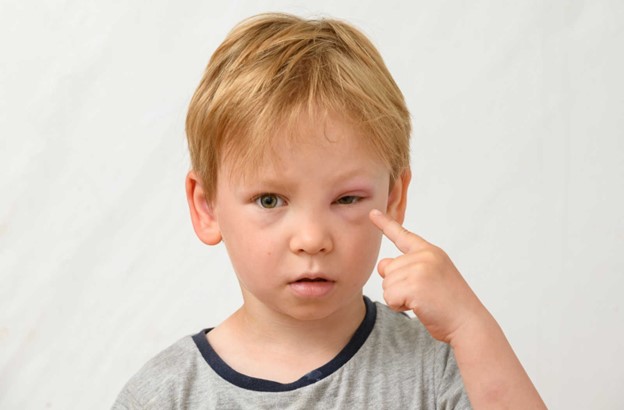A nurse is caring for a preschooler who is terminally ill. Which of the following reactions to death should the nurse expect?
Understands that death is permanent.
Perceives death as a punishment.
Worries about physical body changes.
Has feelings of isolation.
The Correct Answer is B
The correct answer is choice b. Perceives death as a punishment.
Choice A rationale:
Preschool-aged children generally do not understand that death is permanent. They often view death as temporary or reversible, similar to what they see in cartoons.
Choice B rationale:
Preschoolers may perceive death as a punishment for something they did or thought. This age group often feels guilt and shame, believing their actions or thoughts caused the illness or death.
Choice C rationale:
Worrying about physical body changes is more typical in older children who have a better understanding of the physical aspects of illness and death.
Choice D rationale:
Feelings of isolation are more common in older children and adolescents who are more aware of social dynamics and the implications of their illness.
Nursing Test Bank
Naxlex Comprehensive Predictor Exams
Related Questions
Correct Answer is A
Explanation
Choice A rationale:
Swelling around the eyelids and mouth could indicate an allergic reaction, which can be severe in some cases. Anaphylaxis is a life-threatening reaction that can occur after immunizations. The nurse's priority is to assess and address any signs of an allergic reaction promptly. Swelling of the face, particularly around the eyes and mouth, is a red flag for potential anaphylaxis, and immediate intervention is necessary to prevent further complications.

Choice B rationale:
A temperature of 100.7 degrees Fahrenheit is considered a mild fever. While it's important to monitor for fever after immunizations, a mild fever alone may not be the nurse's top priority, especially if the child is otherwise stable. Fever can be a common post-immunization response and is often self-limiting.
Choice C rationale:
While monitoring the child's intake is important, only eating 2 ounces during the last feeding is not a priority concern compared to potential allergic reactions or fever. A temporary decrease in appetite following immunizations can be expected and might resolve on its own.
Choice D rationale:
Crying when the injection site is touched is a common response to discomfort from the shot. While it's essential to provide comfort and support to the child, this finding is not indicative of a severe reaction. It's not the nurse's priority compared to potential signs of an allergic reaction or a more significant fever.
Correct Answer is B
Explanation
The correct answer is choiceb. Perceives death as a punishment.
Choice A rationale:
Preschool-aged children generally do not understand that death is permanent.They often view death as temporary or reversible, similar to what they see in cartoons.
Choice B rationale:
Preschoolers may perceive death as a punishment for something they did or thought.This age group often feels guilt and shame, believing their actions or thoughts caused the illness or death.
Choice C rationale:
Worrying about physical body changes is more typical in older children who have a better understanding of the physical aspects of illness and death.
Choice D rationale:
Feelings of isolation are more common in older children and adolescents who are more aware of social dynamics and the implications of their illness.
Whether you are a student looking to ace your exams or a practicing nurse seeking to enhance your expertise , our nursing education contents will empower you with the confidence and competence to make a difference in the lives of patients and become a respected leader in the healthcare field.
Visit Naxlex, invest in your future and unlock endless possibilities with our unparalleled nursing education contents today
Report Wrong Answer on the Current Question
Do you disagree with the answer? If yes, what is your expected answer? Explain.
Kindly be descriptive with the issue you are facing.
